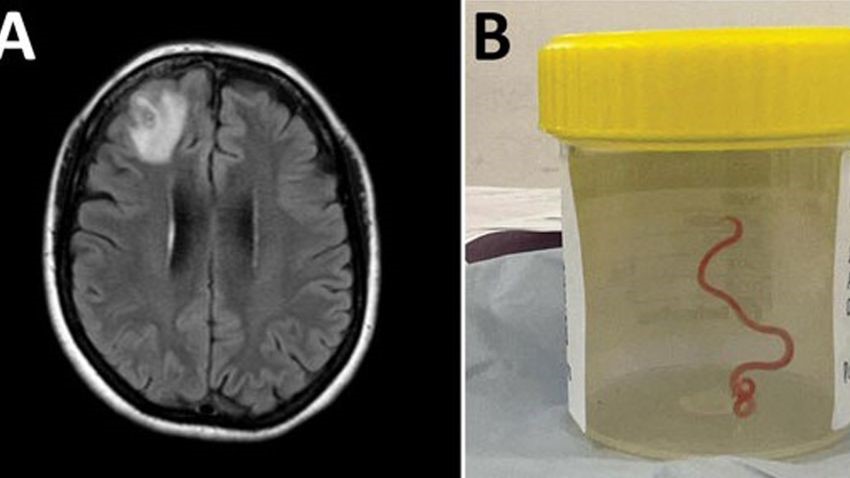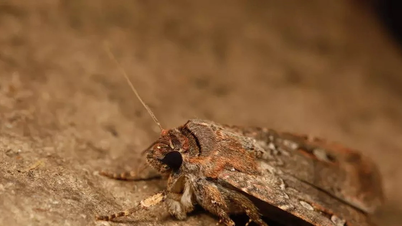
Roundworms that doctors removed from a female patient's brain. (Screenshot from video by CNN)
In an interview with CNN after discovering live roundworms in a human brain for the first time in the world , Dr. Bandi said: “I have seen worms while gardening,... I find them creepy and this is really not something I want to see.”
Canberra Hospital infectious disease expert Sanjaya Senanayake said the discovery had sent the entire medical community racing to understand the nature of the parasite.
A colleague at the hospital's laboratory contacted an animal parasitologist at a government scientific research agency 20 minutes away, and received an unexpected answer.
“We sent him the live worm. He examined it and identified it immediately,” said Mr Senanayake.
According to information in a press release issued by the Australian National University and Canberra Hospital, molecular tests showed that the worm was named Ophidascaris robertsi, a form of roundworm commonly found in pythons.
“To our knowledge, this is the first case involving a mammalian brain, whether human or other animal,” said Mr Senanayake of the Australian National University.
The patient lived in a lakeside area in southwestern New South Wales where carpet pythons are common. Although she had no direct contact with them, she may have been infected with the parasite after eating spinach, which grows naturally in the area, the researchers said.
In her case, doctors and scientists hypothesized that the pythons may have contaminated the vegetables with parasites through their feces, and then the patient came into contact through hand contact before cross-contaminating other foods or cooking utensils.
Parasite discovery
The woman was hospitalized in January 2021 after experiencing abdominal pain and diarrhea for three weeks; she then developed a persistent dry cough, fever, and sweats while sleeping.
Months later, she began to experience forgetfulness and depression and was taken to a hospital in the Australian capital, where an MRI scan revealed a strange problem in the right frontal lobe of her brain.
Typically, carpet pythons in Australia carrying parasites will spread the parasite eggs through their feces onto plants that small mammals or marsupials eat. At some point in the future, these pythons will eat those small animals and the parasite eggs will hatch into parasites, continue to live inside the python, and complete the cycle.
In this case, the patient became an unwilling host. The parasite is highly invasive and it is likely that larvae or larvae will appear in other parts of her body, including her lungs and liver, Mr. Senanayake said.
Nguyen Quang Minh (according to CNN)
Source








































































































Comment (0)